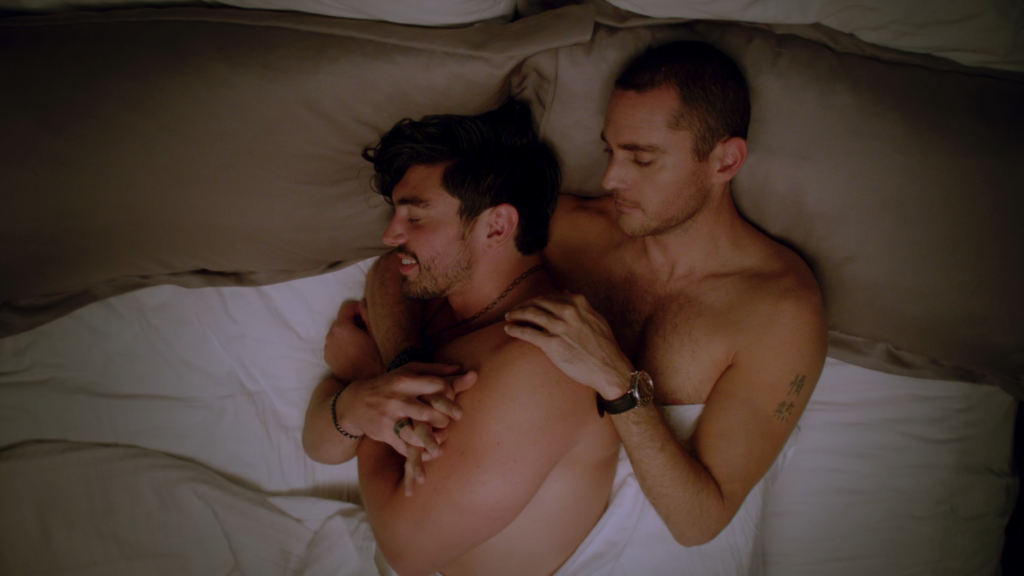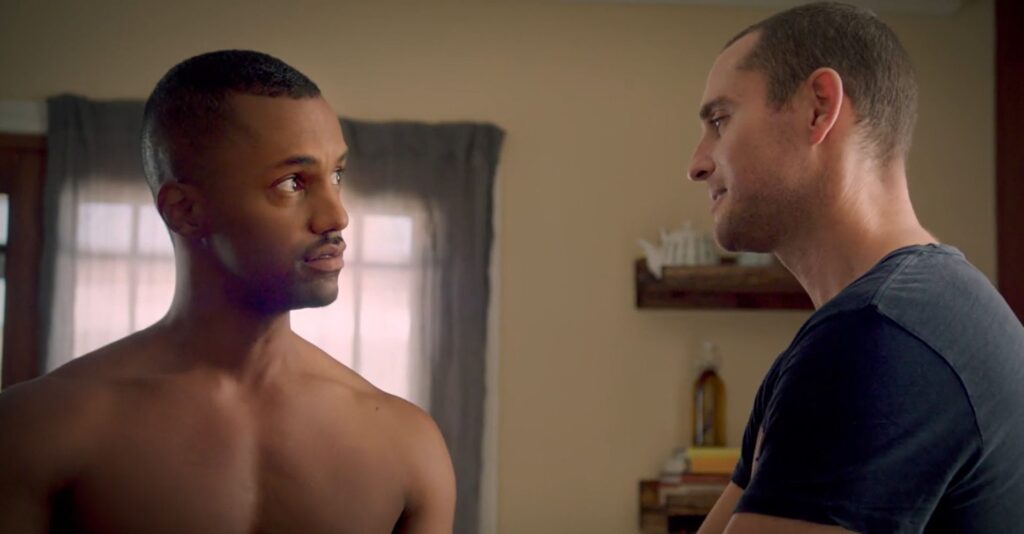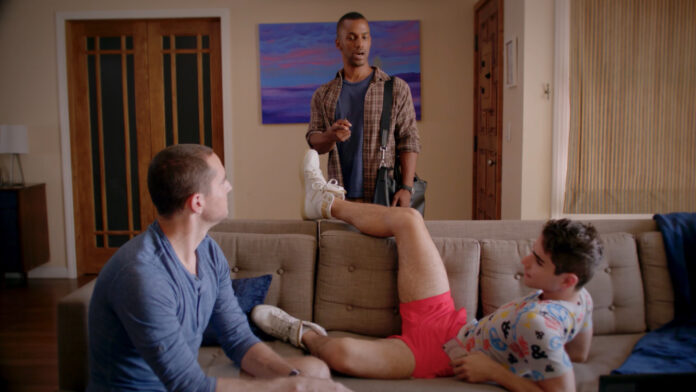Writer/director Q. Allan Brocka, along with co-writer Matthew Rettenmund, bring “Boy Culture” back with this new feature — based on Rettenmund’s 1995 book and Brocka’s 2006 film — that has sex worker X (Derek Magyar) and Andrew (Darryl Stephens) living together but broken up. X is still doing sex work with the assistance of Chayce (Jason Caceras), who teaches the older master some new tricks — like getting on apps for a start.
“Boy Culture: Generation X,” which was edited together from a six-episode series, features X’s experiences with various clients, each of whom test his boundaries. Meanwhile, he finds he still may have feelings for Andrew, who is trying to move on.
Brocka talked with PGN about rebooting “Boy Culture,” which is now available on streaming platforms.
Why revisit these characters 10 years later?
That wasn’t the initial goal. When I first adapted the book — and the book is a series of confessions; it wasn’t “one big story” — I thought it would make a good series, with each episode as a different confession. So, after we made the film, we started pitching the series. It was very queer and very sexual and there wasn’t an appetite for that in 2006. We dropped it. Around 2012, the climate was changing, and we thought there might be interest. We started writing, and did six 15-minute episodes, so we could do the film festival circuit like a feature. It took more time to raise the money to make it, so we shot it in 2017. Then with COVID, and other delays, it did not come out until 2021 and we are finally releasing it in 2023. We pitched it during the Bush administration, wrote it during Obama, filmed it during Trump, and now it’s coming out during Biden. That’s how long this project has been going. It’s been a long road!
The feature emphasizes growing up — X is now a “daddy.” Whereas Andrew doesn’t know what he wants to be/do with his life. Meanwhile, the young Chayce has all the wisdom. What decisions did you make about the characters’ arcs?
The pitches were around the client — what kind of client would be interesting? The home life was the meat of the series and that evolved over the years. We are aging. What do we want to talk about? We started in our 30s, wrote it in our 40s, and now are in our 50s. What did we notice as we aged as queer men? A lot of what Andrew and X go through is our own stuff we have been observing and dealing with and enjoying in the community.
How did you work with Derek and Darryl to approach their characters years after the original film? There is a different dynamic here in that they are exes, but there is still the same smoldering sexual tension between them.
It was super easy. Matthew and I made up the dynamic on our own. When we realized we could not make it Seattle and had to be in LA, we reapproached their situation. What are we doing here? We had to lose the supporting characters because it didn’t make sense they moved. Picking up several years later, it might be more interesting if this relationship is not working anymore. At the time we were writing it, Matthew was living with his ex in a place, and another friend of mine was doing the same; they were broken up but living together. What if they are still roommates, and breaking up? It forces them to be in each other’s faces.

“Boy Culture: Generation X” addresses various taboos and raises some provocative questions. What informed the various encounters?
All the sex that I have had and people I talk to. Matthew and I talked about: What have we done? What have our personal sexual adventures taught us? And what sex stories have we heard from people, in talking with our friends? The sex aspect came from that. We also needed to make sure that whatever he was doing sexually, there was some emotional grounding in his home life, so it would make his own personal arc interesting. It wasn’t random sexual adventures. We wanted X to learn and grow.
Can you talk about researching sex work? What insights did that give you?
We did do research. I talked to sex workers. One of the most interesting things was learning about how marketing has completely changed in the sex industry. What was fascinating to me was how drastically the culture and the approach to it has changed since the [original] film and now. The main way to find an escort [in 2006] was through an ad in a magazine. Now it’s exclusively online. Sex workers are now salespeople in a different way. It’s about marketing and branding. All of these ways of marketing yourself has made people more open about their work and what they do and along with that, there is pride. Chayce is an out and proud sex worker who is owning it and living his life. There was not a lot of that 15 years ago.
What decisions did you make about how much sex you depicted and how much nudity you showed?
I’m personally all about gratuitous sex in shows. I love it. I made the “Eating Out” movies. But in “Boy Culture,” it was really more about the emotional experience and how the experience of sex impacts one’s thinking and one’s way of life. That is where we always started. How does It change X and the world around him, and what has he learned? From there, we include what feels necessary to tell that story.
The show talks about aging, finding happiness, and self-worth. What observations do you have about these characters, and your own self?
You grow to appreciate routine, but you can get way too ingrained in it and smaller things can challenge you as you become stuck in routine. And that’s where X is. I find that in my own life. You feel people look at you and think about you differently in the community. Some of it is good. Some of it is bad. It depends on who and where you are.
Then there is the whole reckoning of self-identity — who these people are in their lives and relationships, as well as outside of their relationship and career? X and Andrew have been together for 10 years. They are trying to figure out who they are outside of this relationship. Andrew is in a job he is not passionate about. If he is not defined by his job or his family (e.g., X), who is he? We call it a midlife crisis, but it’s a little bit different for queer people, especially for people who came of age when there was no assumption that you could get married and start a family of your own.
Will X, Andrew and Chayce have more adventures?
If an opportunity arises, we would definitely take it. We have ideas. Darryl, Derek and Jason are on board. We’d love to see how these characters continue. Time will tell. If we got the green light in another 10 years, we’d figure out where the characters are 10 years from now.

